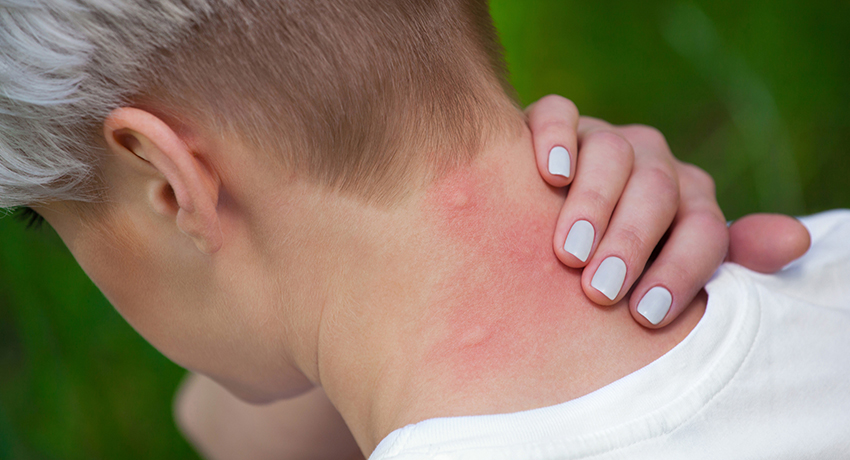Nothing defines a Texas summer quite like the heat and humidity. And perhaps nothing breeds better in that perfect combination of thick, moist air than bugs. They’re out – flying, creeping, and crawling. In a summer notably marked by rainstorms and flooding, the mosquito population has also exploded. No matter how small, the tiniest creature outside can inflict pain.

“Even if you’ve never had an allergic reaction to a bug bite before, you can have an allergic reaction for the first time at any age,” said Salil K. Bhandari, MD, an emergency medicine physician with UTHealth Houston.
Common insects that cause allergic reactions
Bees, wasps, ants, and caterpillars are the most common bugs that can cause allergic reactions. Bites and stings from insects can be uncomfortable, painful, and even deadly.
“Insect stings cause 90-100 deaths per year in the United States due to severe allergic reactions,” said Bhandari, an associate professor of emergency medicine with McGovern Medical School at UTHealth Houston. “Up to 1% of the U.S. population is severely allergic to insects.”
Allergy symptoms
Most people will experience mild reactions, but for a small portion of the population, an allergic reaction can turn severe.
Mild symptoms:
- Itchy skin
- Hives
- Pain at the site of sting or bite
Severe symptoms:
- Lip swelling
- Tongue swelling
- Shortness of breath
- Vomiting
- Rapid heart rate
- Dizziness
When to go to the ER for a bug bite
“For any reaction beyond mild itching, you should go to the emergency room because you don’t know how fast it’s going to evolve and develop,” said Bhandari.
If the reaction involves any two of these three body systems — skin (itching), respiratory (shortness of breath), and gastrointestinal (vomiting) — it’s considered a severe allergic reaction, also known as anaphylaxis.
“A severe allergic reaction is one of the most dangerous things in emergency medicine because someone’s airway can be blocked within minutes,” said Bhandari. “It can be fatal in a very short amount of time.”
At-home treatments for bug bites
The first treatment for any bite or sting is to clean the site with soap and water, then follow these tips for pain relief:
- Apply a cold compress.
- Apply hydrocortisone or Benadryl cream.
- Use a flat surface to scrape stingers out. Do not use tweezers to remove stingers; the pressure could inject more venom.
- Use scotch tape to remove caterpillar hairs.
How to prevent bug bites
- Use insect repellent containing DEET or oil of lemon eucalyptus, applying to exposed skin and clothing.
- Wear light-colored clothing.
- Wear long sleeves, pants, socks, and closed-toed shoes.
- Clean up food/drink spills to avoid attracting bugs.
- Routinely check backyard play sets and equipment for newly built bug nests, hives, or hills.
- Spill out all standing water to avoid attracting mosquitos.
Awareness means more fun
“This is not about limiting your life,” said Bhandari. “Proper precautions and awareness will help you enjoy the outdoors with less worry about bug bites.”
You don’t have to love the heat and humidity, but you can spend time outside without fear of those pesky bugs or of insect allergies if you take precautions and stay aware.


